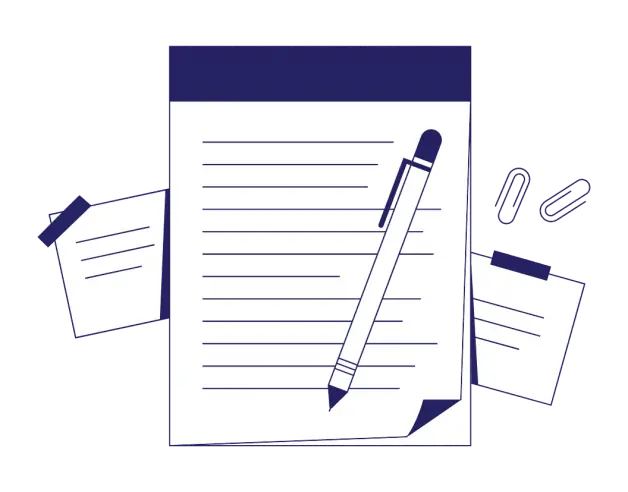
- 4-minute read
- 25th April 2023
Grammar Tips: Superlative Adjectives
Superlative adjectives (not to be confused with comparative adjectives) are the best adjectives in English! In this article, we’ll break down what superlative adjectives are and how to use them, looking at some examples along the way.
Intro to Superlative Adjectives (For Beginners and Novices)
Superlative adjectives are used when something or someone standouts in some way. For example, “She’s the brightest student in the school,” or “He’s the slowest runner on the team.”
How To Make an Adjective Into a Superlative Adjective
A superlative is based on how many syllables are in an adjective. For example, “clean” is one syllable, so to make it a superlative adjective, we add -est to the end of the word, “cleanest.”
One-Syllable Words | |
clean | cleanest |
cold | coldest |
tall | tallest |
short | shortest |
small | smallest |
nice | nicest |
When a word has two syllables, we add “most” before the adjective to make it a superlative. The exception is when the adjective is two syllables and ends in -y. In these cases, we drop the -y and add -iest to make it a superlative adjective. Have a look at the table below for some examples.
Two-Syllable Words | |
modern | most modern |
famous | most famous |
careful | most careful |
prepared | most prepared |
Two-Syllable Words Ending in -y | |
angry | angriest |
happy | happiest |
heavy | heaviest |
silly | silliest |
Finally, for words with three or more syllables, you add “most” before the adjective, as with these examples.
Three or More Syllables in a Word | |
beautiful | most beautiful |
important | most important |
generous | most generous |
wonderful | most wonderful |
auspicious | most auspicious |
Of course, this wouldn’t be English grammar without some exceptions! Here’s a list of irregular adjectives that don’t follow the above superlative adjective rules – they just need to be memorized.
Irregular Adjectives and Their Superlatives | |
good/well | best |
bad | worst |
far | farthest |
little | least |
old (the age of someone) | eldest |
many | most |
“The” + Superlative Adjective + Noun
There are a few ways to use superlatives in a sentence. The first is when the superlative adjective comes before a noun. In these cases, we add “the” before it. Here are some examples:
I went to the best cafe this weekend.
I had the worst day today.
This is the biggest bowl I have.
Possessive Pronoun + Superlative Adjective + Noun
Another common use of superlative adjectives is with a possessive pronoun, such as my, his, hers, theirs, our, etc. In this case, we don’t use “the” before the superlative adjective. Let’s look at the following examples:
He had his worst performance this weekend.
Her prettiest cake is on display in the window.
So far, we’ve covered the basics of superlative adjectives so you can feel confident using them in your speech or writing. In the next section, we’ll take a closer look at some more advanced uses of superlative adjectives in English.
A Closer Look at Superlatives (For Experts)
Superlative Adjectives Without a Noun
When a superlative adjective isn’t followed by a noun (usually placed at the end of a sentence), “the” is optional. Take a look at the example sentences below.
However, if the superlative adjective comes directly before a noun (like in the examples below), we must use “the” before it.
Superlative Adverbs
While superlative adjectives are used to compare nouns, superlative adverbs are used to compare verbs, adjectives, or other adverbs. Keep in mind that one word can function as both a superlative adverb and a superlative adjective. The difference is in how the word is used in a sentence.
For example, in “Of all the runners, John ran fastest,” “fastest” is a superlative adverb. However, if we say, “John is the fastest runner,” “fastest” is a superlative adjective.
Find this useful?
Subscribe to our newsletter and get writing tips from our editors straight to your inbox.
Subscribe to Beyond the Margins and get your monthly fix of editorial strategy, workflow tips, and real-world examples from content leaders.
How To Use Superlative Adverbs in a Sentence
Superlative adverbs are used just like superlative adjectives in a sentence. The only thing to look out for is adverbs that end in -ly, in which case we use “most” or “least” before them.
Using “the” before a superlative adverb is optional:
My daughter reads (the) fastest.
I like strawberries (the) best.
Superlative Adjectives and Comparing Situations
So far, we’ve looked at how to use superlative adjectives and adverbs when comparing multiple things or people. However, we can also use them to compare different situations. When using superlatives to compare situations, we usually don’t use “the” beforehand. Let’s consider some example sentences.
(Owls are more active at night compared to the morning or afternoon.)
(Owls are more active at night compared to other animals, such as cows.)
(Washington state is more depressing than any other state.)
(Washington state is more depressing during rainy months compared to other months/seasons.)
(Iced coffee is better than another drink).
(Iced coffee is better to drink on a hot summer’s day compared to another day, such as a cold winter’s day.)
Conclusion
Now that you’ve read this article, you’re most prepared to use superlatives in your day-to-day writing and speaking! While there are many rules and exceptions to using superlatives in English, with time and practice (and maybe a few mistakes along the way!), you will feel confident using them.
Interested in English grammar? Check out our Grammar Tips page to read more.




